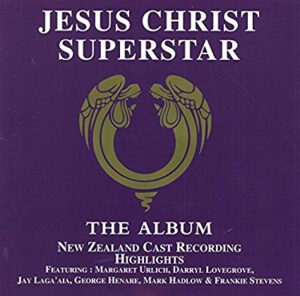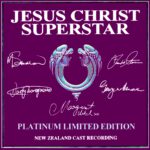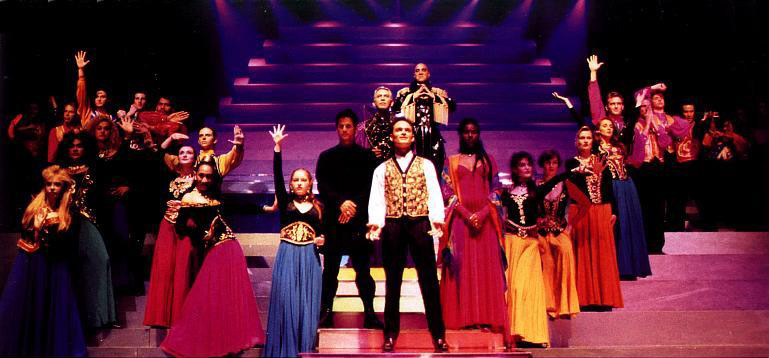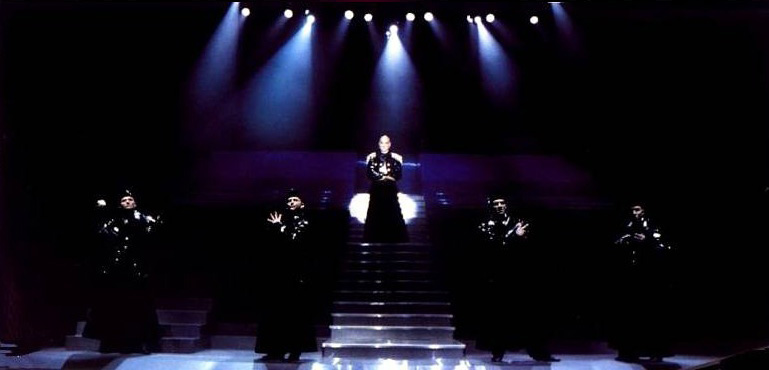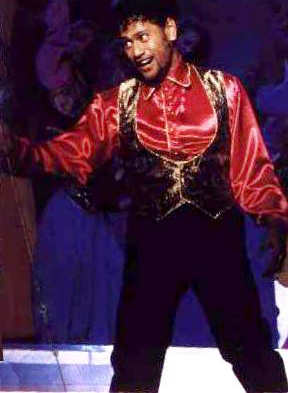Artwork
Cast
Jesus of Nazareth…………Darryl Lovegrove
Judas Iscariot…………Jay Laga’aia
Mary Magdalene…………Margaret Urlich
Pontius Pilate…………George Henare
King Herod…………Mark Hadlow
Simon Zealotes…………Jonathan Brooke
Caiaphas…………Frankie Stevens
Peter…………Tim Beveridge
Orchestra
Guitars: Stuart Fraser, Willy Zygier
Bass, Keyboards, Programming: David Hirschfelder
Additional Programming (“Simon Zealotes,” “King Herod’s Song”): Gus Till
Drums: Virgil Donati
Trumpet, Valve Trombone: Russell Smith
French Horns: Russell Davis, Graeme Evans
Saxophones, Woodwinds: Tony Hicks
Harmonica, Tenor Saxophone: Steve Williams
Percussion: Geoffrey Hales
Track Listing
Overture
Heaven On Their Minds
What’s The Buzz / Strange Thing, Mystifying
Everything’s Alright
Hosannna
Simon Zealotes / Poor Jerusalem
Pilate’s Dream
The Temple
Everything’s Alright (Reprise) / I Don’t Know How To Love Him
The Last Supper
Gethsemane
Could We Start Again Please?
King Herod’s Song
Trial Before Pilate (Including The Thirty-Nine Lashes)
Superstar
John 19:41
Historical Notes from a Fan
There is a presence in popular culture, a looming phantom […] I have seen it in the dusty beams of movie projector lights; I have spied its dusty fingerprints all over television screens and radios. It is particularly fond of advertisements, but will turn up just about anywhere. I am talking about Nostalgia, which coats popular culture with a light […] film of dust. You know that Coca-Cola’s sales are lagging when they are turning out these curvaceous old glass bottles. Rice Krispies come in old-fashioned packages now with Norman Rockwell-esque children spooning it up on the box. Hershey’s has jumped the bandwagon and adopted an antiquated face too, with Ye-Olde-looking paper wrapped around some of their chocolate bars. Does this new wave of oldness really grab the public eye? It is endearing, I suppose, this cozy retrospection…
— Wendy Kagan, “Nostalgia craze sends art back in time,” Left of Center (Vol. 4, No. 1), September 1, 1990
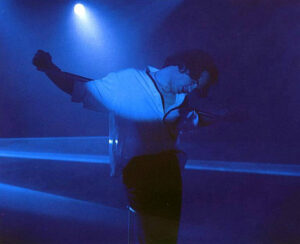
At one point or another, everybody is nostalgic for the decade in which they came of age. Every surviving member of each nostalgic decade has something to miss: music, TV shows, Saturday morning cartoons, hanging out with your friends at the skating rink or the mall, or over an egg cream at the drugstore (choose your nostalgic junket). And, on average, the big waves of nostalgia take about 15-25 years to get going.
In the Nineties, a lot of Seventies nostalgia got big. From 1988 (when it premiered after the Super Bowl) to 1993, The Wonder Years, an Emmy-winning “coming of age” family show created specifically to appeal to the baby-boomer generation with its late Sixties setting, created much the same buzz that Happy Days (on TV) and American Graffiti (on film) had created for the Fifties during their Seventies heyday. So, as you might imagine, the time was ripe for the Second Coming of Jesus Christ Superstar, and like the manifold artistic depictions of the figure at the center of its story over the past few centuries, it would return in many guises.
After Harry M. Miller’s massive success with his concert revival of JCS in Australia, boasting a cast that was a veritable who’s who of Australian entertainment and the kind of ticket and album sales one can only dream of, it was small wonder that he’d repackage the lot for audiences in New Zealand as well. Joined once again by fellow entrepreneurs Garry Van Egmond and International Management Group in the producing chair, the production in New Zealand, though based on the concert event, was scaled down for conventional theaters, and the cast was less star-studded (Darryl Lovegrove would go on to create the world’s most booked corporate entertainment act The Three Waiters, and Jon Stevens’ older brother Frankie would later be most known as a judge on New Zealand Idol; only Jay Laga’aia had any real success in film or TV before the show or went on to bigger success later), but it played to similar business, and sales kicked into really high gear when Jon Stevens returned to the role of Judas opposite his brother (and Deni Hines — daughter of Marcia, who was the first black Mary Magdalene in JCS history and became a star thanks to the original Australian production — as Mary) when the production went back to the Australian mainland.
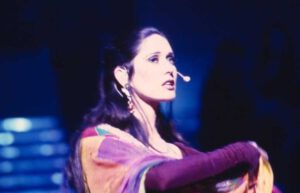
The resulting album is essentially a copy of the Australian version’s arrangements with different voices. The only noteworthy differences are a more conventional arrangement of “King Herod’s Song” (owing, no doubt, to the appropriateness of material to the different performer essaying the role) and a studio recording of “Could We Start Again Please?” (Evidently, Miller or the record label were not going to make the same mistake that had gotten the full live CD of the Australian cast shelved not long before.)
Incidentally, if the song’s placement on the CD before “King Herod’s Song” seems a little unusual, it’s not just you — as the pro-shot video of the Australian concert tour bears out, “Could We Start Again Please?” was moved from its traditional position after Herod’s scene to immediately follow “Peter’s Denial” in this production instead. While this reviewer has never been a fan of seemingly needless change when it comes to JCS, he will make an exception in this instance: the song’s intended purpose when added on Broadway in 1971 is easy to understand (Mary disappears vocally after the first half of Act II, so it’d be nice for her to get another moment in the show, and it can be argued the song eases the mood whiplash from Herod’s big comic relief number to Judas’ dramatic suicide), but some feel the song falls flat where it is placed in the score. Musicians I’ve conversed with who’ve been in the orchestra for JCS often complain that “Herod’s spot has just finished on an uptempo note, greeted by laughs and applause from the audience, and then it’s followed by a slump into this comparatively boring ballad,” and in viewing the show live many times, I concur that in its usual spot the song has often come and gone before the crowd reorients itself enough to process it. If one has made up their mind to move the song, the spot the Australian / New Zealand production picked at least helps it register, and the new placement is organic to the moment setting it up (i.e., Mary and Peter are already present, hesitant, scared, confused, wishing they could turn back the clock, instead of cutting back to them out of nowhere).
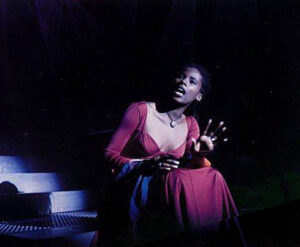
Barring those cosmetic differences, the updated arrangements by David Hirschfelder are still in place, and this reviewer still feels much the same about them as he did the first time he reviewed them. (For fuller thoughts, go read it.) With that in mind, let’s skip ahead to performances.
On the Australian recording, it was Judas who, although captivating, erred too much on the side of caution, with Jon Stevens often sounding like an Aussie Carl Anderson. On this album, it’s Jesus who can’t handle delivering a new approach in the spotlight; Darryl Lovegrove’s vocals might as well have been replaced by Ted Neeley’s from the film, considering how closely he hews to them, especially in terms of phrasing. On the brighter side of things, Jay Laga’aia is a real stand-out as Judas, with some excellent vocal ad-libs even if some of his acting choices were questionable (check out the end of “Superstar” where his voice sounds like he doesn’t see himself as a sinner, but his ad-libs suggest repentance), and it is this reviewer’s opinion that George Henare was better at Pilate than the fine-but-not-particularly-amazing John Waters.
Since the creators of this recording saw fit to recycle the arrangements (albeit with good reasons and intentions, commercially speaking), I see no problem with recycling the end of my Australian review here, which still applies in full force to the New Zealand recording:
All in all: the music of the score holds up today. Most of what you hear on this album (the overly processed vocals and some of the more dated re-arrangements, for example) does not. But this album still ranks as a worthy, indeed necessary, addition to any JCS fan’s collection.
Reviews
Phenomenal
My first full scale stage show and it remains my favourite rendition of most of the songs. The lighting was exceptional and I have never seen anyone play Herod like Mark Hadlow. Jay, Tim and Margaret were exceptional, but the whole cast was incredible. I still listen to the album to this day!
Awesome
20 years down the track this stage show with these performers still rates as the best live show I’ve ever seen and I’ve seen a lot. Stand outs for me were Darryl, Margaret and Jay. I bought the cd and feel lucky to have this piece of memorabilia now that our beautiful Margaret is gone.

